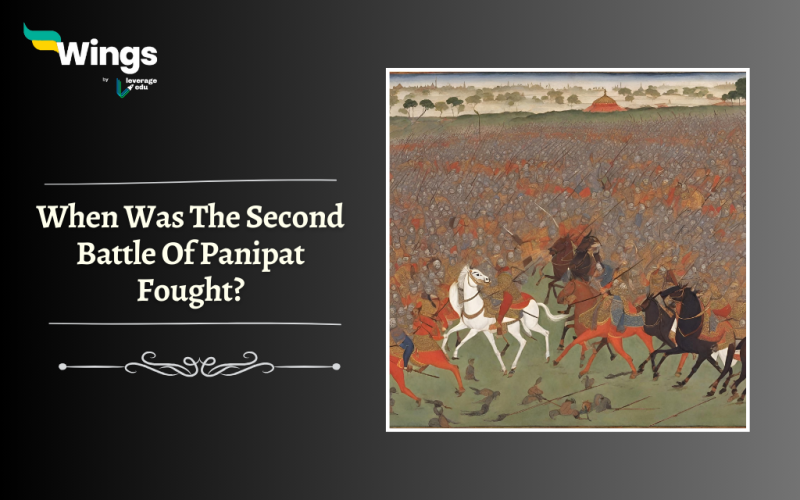The Battles of Panipat were significant battles fought between 1526, 1556 and 1761. They were fought in the plains of Panipat, at present a town in Haryana, India. The Second Battle of Panipat was decisive for the Mughal Emperor Akbar and Commander General Hemu.In this blog, together let us get to know when was the second battle of Panipat fought.
Table of Contents [show]

Year Of The Second Battle of Panipat
The Second Battle of Panipat was fought on 5th November 1556. It was fought between the Mughal Empire and the forces of the local ruler, who although traditionalist in his approach, was the King of Delhi.
- The Forces of Mughal Emperor Akbar: The Mughal forces were led under the command of Bairam Khan. He was the guardian of Mughal Emperor Akbar, who was just then a 13-year-old ruler.
- Army of Hemu: On the opposite side of the battle was the local ruler, the then-king of Delhi, Samrat Hemchandra Vikramaditya. He had established his authority in North India after defeating the Mughal forces in the Battle of Delhi in 1556.
- Hemu’s forces initially gained the upper hand, causing panic among the Mughal ranks.
- However, Akbar’s regent Bairam Khan rallied the Mughal troops and managed to turn the tide of the battle in their favour.
Also Read – Who Won The Second Battle Of Panipat?
- In the turn of events, Hemu was struck by an arrow in the eye, causing him to fall unconscious on the battlefield.
- Hemu was eventually captured and beheaded, leading to the defeat of his forces.
- The sight of their leader falling in battle demoralized Hemu’s forces, leading to their disintegration and eventual defeat.
- The Mughals emerged victorious in the battle, securing Akbar’s position as the undisputed ruler of North India.
The victory at the Second Battle of Panipat solidified Akbar’s position as the Emperor of Hindustan. The Empire was further expanded by his descendants.
That’s all about when was the second battle of Panipat fought. If you want to read more articles like this, you can get Study notes on the Modern History of India here. Also, you can visit our general knowledge page on Indian History!
 One app for all your study abroad needs
One app for all your study abroad needs















 45,000+ students trusted us with their dreams. Take the first step today!
45,000+ students trusted us with their dreams. Take the first step today!
